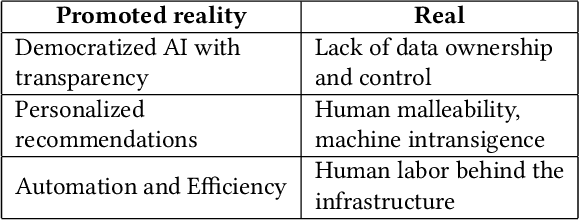Aakash Gautam
Envisioning Possibilities and Challenges of AI for Personalized Cancer Care
Aug 19, 2024
Abstract:The use of Artificial Intelligence (AI) in healthcare, including in caring for cancer survivors, has gained significant interest. However, gaps remain in our understanding of how such AI systems can provide care, especially for ethnic and racial minority groups who continue to face care disparities. Through interviews with six cancer survivors, we identify critical gaps in current healthcare systems such as a lack of personalized care and insufficient cultural and linguistic accommodation. AI, when applied to care, was seen as a way to address these issues by enabling real-time, culturally aligned, and linguistically appropriate interactions. We also uncovered concerns about the implications of AI-driven personalization, such as data privacy, loss of human touch in caregiving, and the risk of echo chambers that limit exposure to diverse information. We conclude by discussing the trade-offs between AI-enhanced personalization and the need for structural changes in healthcare that go beyond technological solutions, leading us to argue that we should begin by asking, ``Why personalization?''
Reconfiguring Participatory Design to Resist AI Realism
Jun 05, 2024
Abstract:The growing trend of artificial intelligence (AI) as a solution to social and technical problems reinforces AI Realism -- the belief that AI is an inevitable and natural order. In response, this paper argues that participatory design (PD), with its focus on democratic values and processes, can play a role in questioning and resisting AI Realism. I examine three concerning aspects of AI Realism: the facade of democratization that lacks true empowerment, demands for human adaptability in contrast to AI systems' inflexibility, and the obfuscation of essential human labor enabling the AI system. I propose resisting AI Realism by reconfiguring PD to continue engaging with value-centered visions, increasing its exploration of non-AI alternatives, and making the essential human labor underpinning AI systems visible. I position PD as a means to generate friction against AI Realism and open space for alternative futures centered on human needs and values.
* 6 pages, 1 table
 Add to Chrome
Add to Chrome Add to Firefox
Add to Firefox Add to Edge
Add to Edge